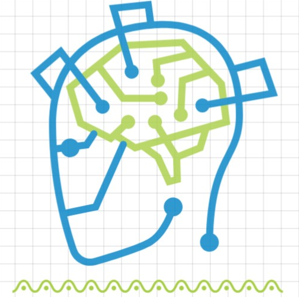"Mentorship is a powerful tool that can help you to achieve your goals, build your skills, and grow as a person." — The Muse
Mentorship is a relationship between a more experienced individual (the mentor) and a less experienced individual (the mentee). The mentor provides guidance, support, and advice to the mentee, helping them to develop their skills and knowledge, achieve their goals, and navigate their career. There are many benefits of mentorship for students.
Here are just a few:
- Increased confidence and self-esteem: A mentor can help you to believe in yourself and your abilities. They can provide you with positive reinforcement and encouragement, which can help you to boost your confidence and self-esteem.
- Improved career development: A mentor can help you to develop your career goals and plan your path to success. They can share their insights and experiences, and help you to network with other professionals in your field.
- Enhanced learning and development: A mentor can help you to learn new skills and knowledge. They can share their expertise and knowledge with you, and help you to develop your critical thinking and problem-solving skills.
- Expanded network: A mentor can help you to expand your network of contacts. They can introduce you to other professionals in your field, which can open up new opportunities for you.
- Personal growth and development: A mentor can help you to grow and develop as a person. They can provide you with guidance and support, and help you to reflect on your experiences and learn from them.
If you are a student, I encourage you to consider enrolling in a mentorship program. It can be a valuable experience that can help you to achieve your goals and reach your full potential. Here are some of the takeaways that you can expect from a mentorship program:
- You will learn from someone who has experience and knowledge in your field.
- You will get personalized advice and guidance on your career goals.
- You will have someone to network with and get introductions to other professionals.
- You will build confidence and self-esteem as you learn and grow.
- You will have a sounding board for your ideas and challenges.
- You will be part of a community of supportive individuals who are committed to your success.
If you are interested in enrolling in a mentorship program, there are a few things you can do:
- Talk to your professors, advisors, or career center about mentorship programs that are available to students.
- Do some research online to find mentorship programs that are a good fit for you.
- Reach out to potential mentors and express your interest in their program.
Mentorship can be a valuable experience for students of all ages and backgrounds. If you are looking for a way to boost your confidence, develop your skills, and achieve your goals, I encourage you to consider enrolling in a mentorship program.
If you are a looking to step into Cyber Security Domain , You can enroll in my Mentoring Program.
You can see my LinkedIn Profile to verify my credentials.
If you are looking for a way to boost your confidence, develop your skills, and achieve your goals, I encourage you to consider seeking out a mentor. It can be a valuable experience that can help you to reach your full potential.
Do's" and "Don'ts" for participants in the mentoring program
Here are some essential "Do's" and "Don'ts" for participants in the mentoring program to ensure a positive and productive experience:
Do's:
- Be Proactive: Take the initiative to schedule meetings, ask questions, and seek guidance from your mentor.
- Set Clear Goals: Define your career objectives and communicate them to your mentor so they can tailor their guidance accordingly.
- Be Open to Feedback: Embrace constructive criticism as an opportunity for growth and improvement.
- Respect Time Commitments: Be punctual for meetings and respect your mentor's time. Notify them in advance if you need to reschedule.
- Actively Listen: Pay close attention to your mentor's advice and insights, and ask clarifying questions when needed.
- Be Flexible: Be open to exploring various aspects of network security and adapt to changes or shifts in your career path.
- Maintain Confidentiality: Respect the confidentiality of sensitive information and discussions within the mentoring relationship.
- Express Gratitude: Show appreciation for your mentor's time and guidance through regular expressions of thanks.
Don'ts:- Don't Be Passive: Avoid waiting for your mentor to do all the work. Take responsibility for your own learning and progress.
- Don't Overwhelm: While it's great to be proactive, don't overwhelm your mentor with constant requests or questions. Respect their availability.
- Don't Disregard Feedback: Don't dismiss feedback or become defensive. Instead, use it as an opportunity for self-improvement.
- Don't Waste Time: Avoid going off-topic during mentoring sessions, as it can waste valuable time for both you and your mentor.
- Don't Disregard Commitments: If you commit to completing tasks or assignments, don't neglect them. Your mentor is investing their time in your development.
- Don't Neglect Preparation: Come prepared for mentoring sessions with specific questions or topics you'd like to discuss. Avoid being unprepared or vague.
- Don't Violate Trust: Respect the trust your mentor places in you. Avoid sharing confidential information or using it inappropriately.
- Don't Forget to Follow Up: After receiving advice or guidance, don't forget to follow up on your progress or actions taken based on that advice.
By following these "Do's" and "Don'ts," participants in the mentoring program can create a positive and productive mentoring relationship that benefits both the mentor and the mentee.
I hope this blog has been helpful. If you have any questions, please don't hesitate to contact me.
